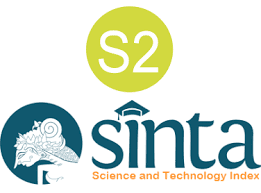“Efektivitas Mekanisme REDD (Reducing Emissions from Deforestation and Forest Degradation) sebagai Kebijakan yang Dihasilkan oleh Rezim Perubahan Iklim UNFCCC
Abstract
Full Text:
PDFReferences
Buku dan Jurnal
Angelsen, Arild, Sandra Brown, Cyril Loisel, Leo Peskett, Charlotte Streck, and Daniel Zarin, “Reducing Emissions from Deforestation and Forest Degradation (REDD): An Options Assessment Report, Meredian Instute, 2009
Diamant, A., “Brazil’s Emerging Sectoral Framework for Reducing Emissions from Deforestation and Degradation and the Potential to Deliver Greenhouse Gas Emissions Reductions From Avoided Deforestation in the Amazon’s Xingu River Basin”, California: Electric Power Research Institute, 2010
Food and Agriculture Organization, State of the World’s Forest 2011, Rome: Food and Agriculture Organization
Helm, Carsten, Detlef Sprintz, “Measuring the Effectiveness of International Environmental Regimes”, The Journal of Conflict Resolution, Vol. 44, No. 5, 2000, p. 630-652
Holloway, Vivienne and Esteban Giandomenico, “Carbon Planet White Paper: The History of REDD Policy”, North Terrace, Adelaide: Carbon Planet Limited, 2009
Keohane, Robert O., “The Demand for International Regimes”
Levy, Marc A., Oran R. Young, Michael Zürn, “The Study of International Regimes”, European Journal of International Relations, Vol. 1, No. 3, London: Sage Publications, 1995, p. 267 – 330
Long, Stephanie, Ellen Roberts and Julia Dehm, “Climate Justice Inside and Outside UNFCCC: The Example of REDD” Journal of Australian Political Economy, No. 66, 2010: 222 – 246
Miles, Edward L., et all, “Environmental Regime Effectiveness: Confronting Theory with Evidence”, Massachusetts: The MIT Press, 2002
Sprinz, Detlef F.,“Research on the Effectiveness of International Environmental Regimes: A Review of the State of the Art”, Paper for the Final Conference of the EU Concerted Action on Regime Effectiveness, Institut D'educació Contínua (IDEC), November 2000
Zambrano-Barrag¬án, Carolina, Doris Cordero. “Reduced Emissions from Deforestation and Degradation (REDD) in South America”, Quito: Unión Internacional para la Conservación de la Naturaleza (UICN), 2008
UNFCCC, “Report of the Conference of the Parties on its seventeenth session, held in Durban from 28 November to 11 December 2011/FCCC/CP/2011/9/Add.2”
United Nations, “Support to National REDD+ Action: Global Programe Framework 2011 – 2015”Agustus 2011,
Website
http://www.climatefundsupdate.org/themes/redd (judul: REDD-plus Finance; diakses: 24/12/12, 11.43 pm)
http://environment.about.com/od/kyotoprotocol/i/kyotoprotocol.htm (judul: What is the Kyoto Protocol; diakses: 8/11/11, 11.23 pm)
http://forestry.about.com/od/forestresources/tp/world_Forest_Cover.htm (judul: Maps of the World’s Forest, by Steve Nix; diakses: 3/11/11, 10.47 pm)
http://mptf.undp.org/factsheet/fund/CCF00 (judul: Trust Fund Factsheet, UN-REDD Programme Fund; diakses: 24/12/12, 11.52 pm)
http://unfccc.int/kyoto_protocol/items/2830.php (judul: Kyoto Protocol; diakses: 8/11/11, 11.17 pm)
http://unfccc.int/methods_science/redd/items/4547.php (judul: Background; diakses: 2/11/11, 2.15 am)
http://unfccc.int/cop7/issues/briefhistory.html (judul: issues in the negotiating process: a brief history of the climate change process; diakses: 17/10/11, 1.50 am)
Refbacks
- There are currently no refbacks.










